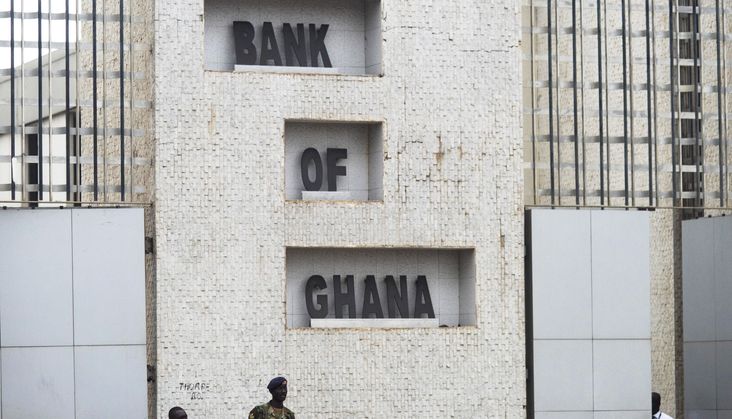The Bank of Ghana (BoG) has attributed its GH¢60 billion loss recorded in 2022 to the controversial Domestic Debt Exchange Programme (DDEP).
The Central Bank said the losses are not due to irresponsibility on its part.
The Director of Research at BoG, Dr Philip Abradu-Otoo made this claim in an interview with Citi FM on Tuesday, August 1.
According to him, the Domestic Debt Exchange Programme was necessary to prevent the total collapse of the Ghanaian economy.
“What we are seeing on the balance sheets of BoG is not as a result of reckless policy, or bad decisions but the direct impact from DDEP. We can say [BoG] policy has been sub-optimal.”
“Sub-optimal in the sense that we chose an action to save the economy from total collapse but as a result of the DDEP, it has landed us here,” he said.
Meanwhile, Dr Philip Abradu-Otoo said measures have been put in place to ensure that the Central Bank recover the losses.
“We need to recover this GH¢60 billion. The central bank would have to retain its profits. We are now going to ensure that we strictly retain all our profits. One other problem that created this situation was the fact that we need now to move towards optimising the returns from our portfolio. We manage our funds ourselves at the Bank of Ghana.
“And we need to ensure that we get a lot of returns. Above all, we need to ensure that we get capitalised as we move along the process. Those talks have started with the government and along the line, we expect some capitalisation from the government,” he added.
The Annual Report and Financial Statements of the Bank of Ghana showed it recorded a loss of ¢60.8 in 2022.
The Central Bank’s record loss is coming after it posted a ¢1.2 billion profit in 2021.
According to the Annual Report and Financial Statements, the loss is attributed to a decline in the Group’s net worth position due to the impact of the Domestic Debt Exchange Programme (DDEP) and impairment of some assets.
Again, its total liabilities and subsidiaries exceeded its total assets by ¢54.52 billion.
In 2021, the Central Bank recorded a surplus of ¢5.72 billion.
Latest Stories
-
Western Region: NDC youth wing embarks on phase 2 of ‘retail campaign’
13 mins -
Action Chapel International holds annual Impact Convention in November
13 mins -
Jana Foundation urges young women to take up leadership roles
18 mins -
All set for Joy FM Prayer Summit for Peace 2024
29 mins -
Managing Prediabetes with the Help of a Dietitian
48 mins -
Joy FM listeners criticise Achiase Commanding Officer’s election comment
1 hour -
Legal Aid Commission employees threaten strike over poor working conditions
1 hour -
Ghana ranked 7th globally as biggest beneficiary of World Bank funding
1 hour -
IMF board to disburse $360m to Ghana in December after third review
1 hour -
Former Bono Regional NPP organiser donates 13 motorbikes to 12 constituencies
2 hours -
Securities industry: Assets under management estimated at GH¢81.7bn in quarter 3, 2024
2 hours -
Gold Fields Ghana Foundation challenges graduates to maximise benefits of community apprenticeship programme
3 hours -
GBC accuses Deputy Information Minister Sylvester Tetteh of demolishing its bungalow illegally
3 hours -
Boost for education as government commissions 80 projects
4 hours -
NAPO commissions library to honour Atta-Mills’ memory
4 hours

